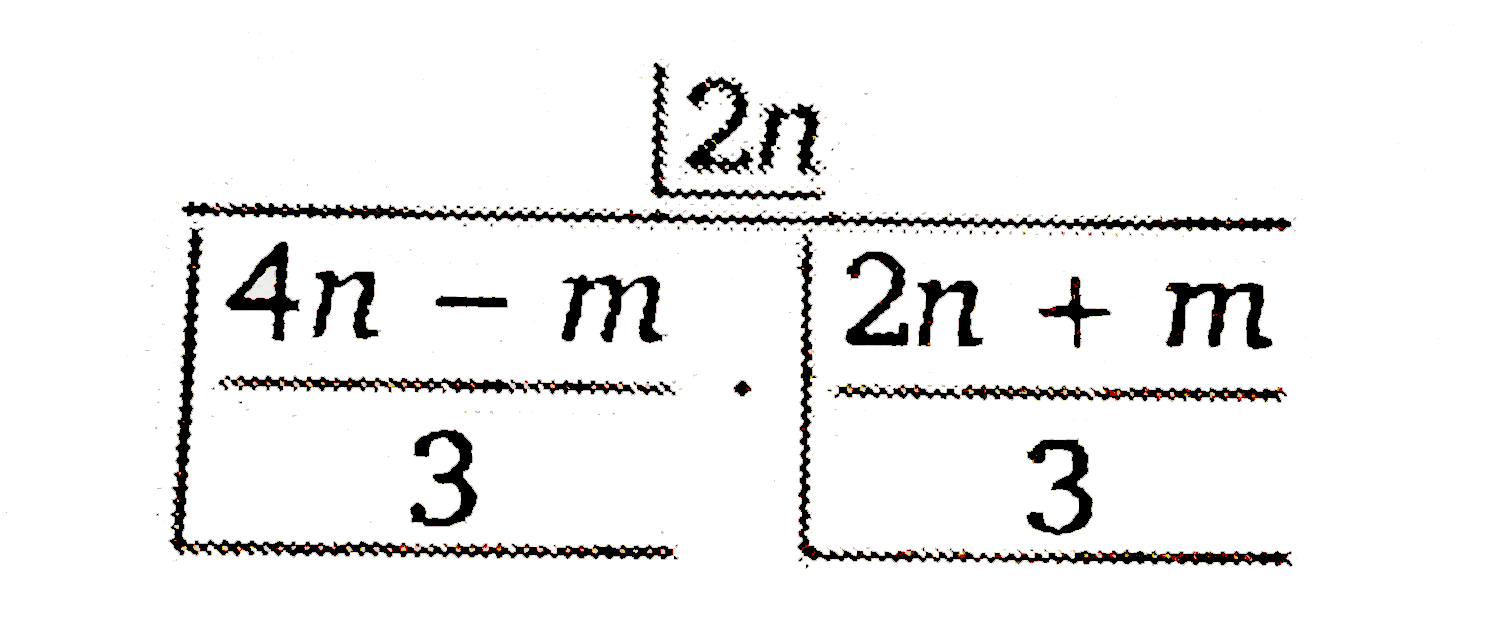Prove that the coefficient of xn in the expansion of 1(1−x)(1−2x)(1−3x)is12(3n+2−2n+3+1).
Video Solution
Text Solution
We have,
1(1−x)(1−2x)(1−3x)
=12(1−x)−41−2x+92(1−3x) [By resolving into partial fractions]
=12(1−x)−1−4(1−2x)−1+92(1−3x)−1
=12(1+x+x2+….+xn+….)
−4(1+2x+(2x)2+….+(2x)n+....)
+92(1+(3x)+(3x)2+....+(3x)n+....)
∴ Coefficient of xn=12[1−8×2n+9×3n]
=12[1−2n+3+3n+2]
|
Updated on:21/07/2023
Topper's Solved these Questions
- BOOK - CENGAGECHAPTER - BINOMIAL THEOREMEXERCISE - Exercise 8.117videos
BINOMIAL THEOREM
- BOOK - CENGAGECHAPTER - BINOMIAL THEOREMEXERCISE - Exercise 8.210videos
BINOMIAL THEOREM
- BOOK - CENGAGECHAPTER - AREA UNDER CURVESEXERCISE - Question Bank20videos
AREA UNDER CURVES
- BOOK - CENGAGECHAPTER - BINOMIAL THEORMEXERCISE - Question Bank31videos
BINOMIAL THEORM
Similar Questions
Knowledge Check
- Question 1 - Select One
The coefficient of xn in the expansion of 1(1−x)(3−x), is
A3n+1−12.3n+1B3n+1−13n+1C2(3n+1−13n+1)Dnone of these - Question 2 - Select One
The coefficient of xnin the expansion of
(1+x1−x)2, isAnB2nC3nD4n - Question 3 - Select One
The coefficient of xn in the expansion of (1+x)2(1−x)3, is
An2+2n+1B2n2+n+1C2n2+2n+1D2n+2n+2
The coefficient of xn in the expansion of
(x2+1x)2n isView SolutionFind the coefficient of x3 in the expansion of 1+(1+x)+(1+x)2+(1+x)3+...+(1+x)n
View SolutionIf 'n' is a positive integer then prove that the coefficient foxm in the expansion of (x2+1x)2n is :
 View Solution
View SolutionThe coefficient of xn in the expansion of
(1+11!x+12!x2…+1n!xn)2View SolutionThe coefficient of x8 in the expansion of 1+(1+x)+(1+x)2+…+(1+x)n(n≥8) is
View Solution

